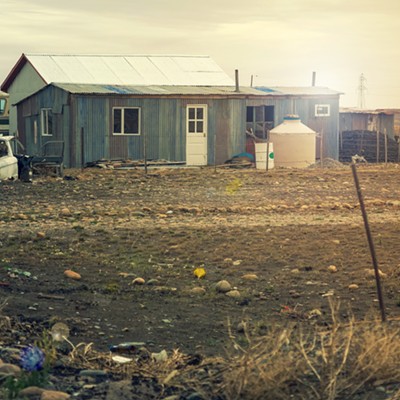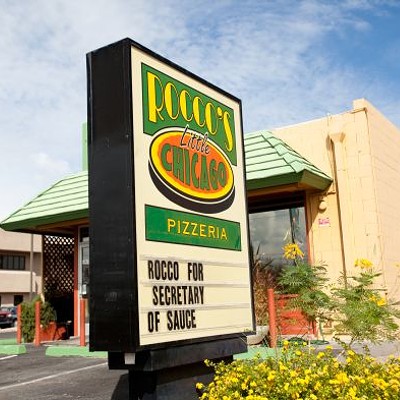This policy began almost benignly, with politicians offering companies tax breaks if they would open stores in their towns. This would create a few new jobs, add to the economy and create tax revenue that would more than cover the amount of the initial handout. Everybody wins, or so it seemed.
Pretty soon, business leaders, realizing that some communities were willing to throw money at them, began to demand that all communities bow down in that particular fashion. Then they came upon an even better strategy: playing one community off against another. If Community A wasn't willing to pay the demanded tribute, the company would just go across the street to Community B, which would then reap the back-end tax revenues.
Once businesses stumbled upon that strategy, it quickly became the standard modus operandi, and municipalities lost any power--real or imagined--that they might have had in the situation. The scramble was on--you could almost hear George C. Scott saying, "We can't have a cave gap!"--and public money flowed into private coffers at an alarming rate.
Even more disturbingly, local governments continued to whore themselves out even when there wasn't any competition. Oro Valley, north of Tucson, is experiencing monstrous growth, yet still felt compelled to offer a sickening tax break to a developer that promised "high-end" stores, one of which turned out to be a Wal-Mart. Now, I'm not a knee-jerk Wal-Mart hater--Lord knows the Walton family has been providing my wardrobe the past 15 years--but the only way "high-end" and Wal-Mart can be in the same sentence is if someone mistakenly built one on the side of a mountain.
Much more importantly, Oro Valley--with its dazzling vistas, high average household income and low crime rate--shouldn't be offering even one dime of taxpayer money to businesses. With its growth rate and a well-heeled populace, the town should just sit back and watch the businesses crawl all over each other to gain a foothold in the community.
So it is, too, in the Valley of the Sun, where growth should be causing businesses to salivate at the opportunities. Unfortunately, all of the little mini-Phoenixes (Peoria, Scottsdale, Mesa) that make up the grotesque mega-Phoenix have been engaging in an all-out whore-a-thon for years now, costing taxpayers hundreds of millions of dollars.
Fortunately, in Phoenix, in Arizona and in the rest of the country, we have now apparently reached the beginning of the backlash stage. The Arizona Legislature recently passed a bill that basically reiterates what is already in the state Constitution: municipalities cannot offer gifts or financial incentives to businesses. Local governments have been ignoring that part of the Constitution for decades, and personally, I think that carting an entire City Council off to jail would do wonders in tightening up the focus of other such governmental bodies.
Alas, the recent state law is horribly watered down and has more loopholes in it than the Bible. Basically, it tells such places as Peoria and Marana that if their community is in the process of being molested by developers, they can wait until the molestation is complete, and then they have the option of deciding whether they would like to be molested by some other developer.
Such has long been the case in Arizona, where community leaders have been doing variations of the Biotech Bend-Over for far too long. In other parts of the country, people are diverting their attention from Lindsay Lohan long enough to realize that their elected officials are giving away the store--to the store. The results are encouraging.
In Frederick County, Md., officials are considering asking for the return of a $5 million tax break to a company that was sold, giving the top executive a windfall of $140 million. In Mississippi, the main issue in a statewide election is the $55 million the state gave to a beef factory that opened in 2004 and then closed the same year.
And in our state capital, the Goldwater Institute, a conservative think tank, has gone to court to try to derail a $97.4 million gift from the city of Phoenix to a developer called CityNorth.
The Institute, which is usually on the wrong side of things thanks to its inexplicable love affair with school vouchers, is dead right-on this one, and all Arizonans should be backing the court action against the wasteful and unnecessary practice.
It's not going to be easy to wean businesses off the free money, but it has to be done. Local politicians need to realize that if they simply did their jobs and provided good streets and parks, police and fire protection, their communities would be plenty attractive to businesses. That might not be the easy, shortcut way, but it's the right way.










